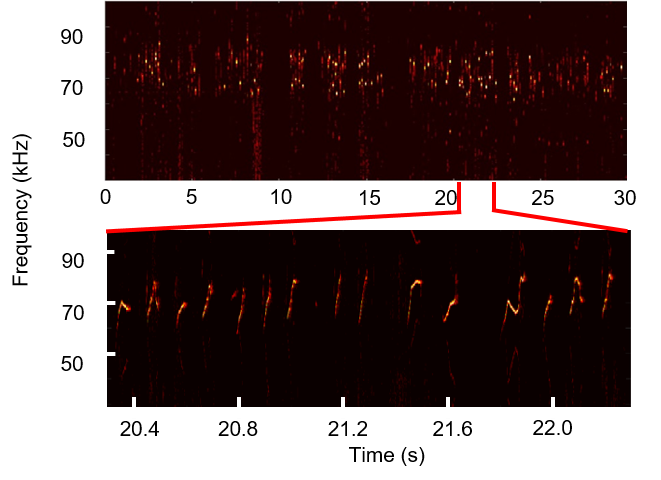You are here
Neural circuits for context-dependent control of vocal communication
Speakers
Abstract
To communicate successfully, both humans and non-human animals must vocalize in the right way and at the right time according to behavioral context. Mice offer a unique opportunity to delineate the neural circuits that regulate the context-dependent production of vocalizations because they offer an unparalleled toolkit of viral-genetic strategies to study defined neurons and because mice produce a rich repertoire of ultrasonic vocalizations (USVs) in different contexts and over development. Mouse pups produce “distress” USVs when cold or when isolated from the nest, and juvenile and adult mice produce “social” USVs during affiliative social interactions and during courtship. I will present published and ongoing work in which we characterize forebrain-to-midbrain circuits that regulate the production of social USVs in adult mice. We are also beginning work to understand how the neural circuits that regulate vocal communication change during early postnatal development, as mice transition from producing distress USVs to producing social USVs.


